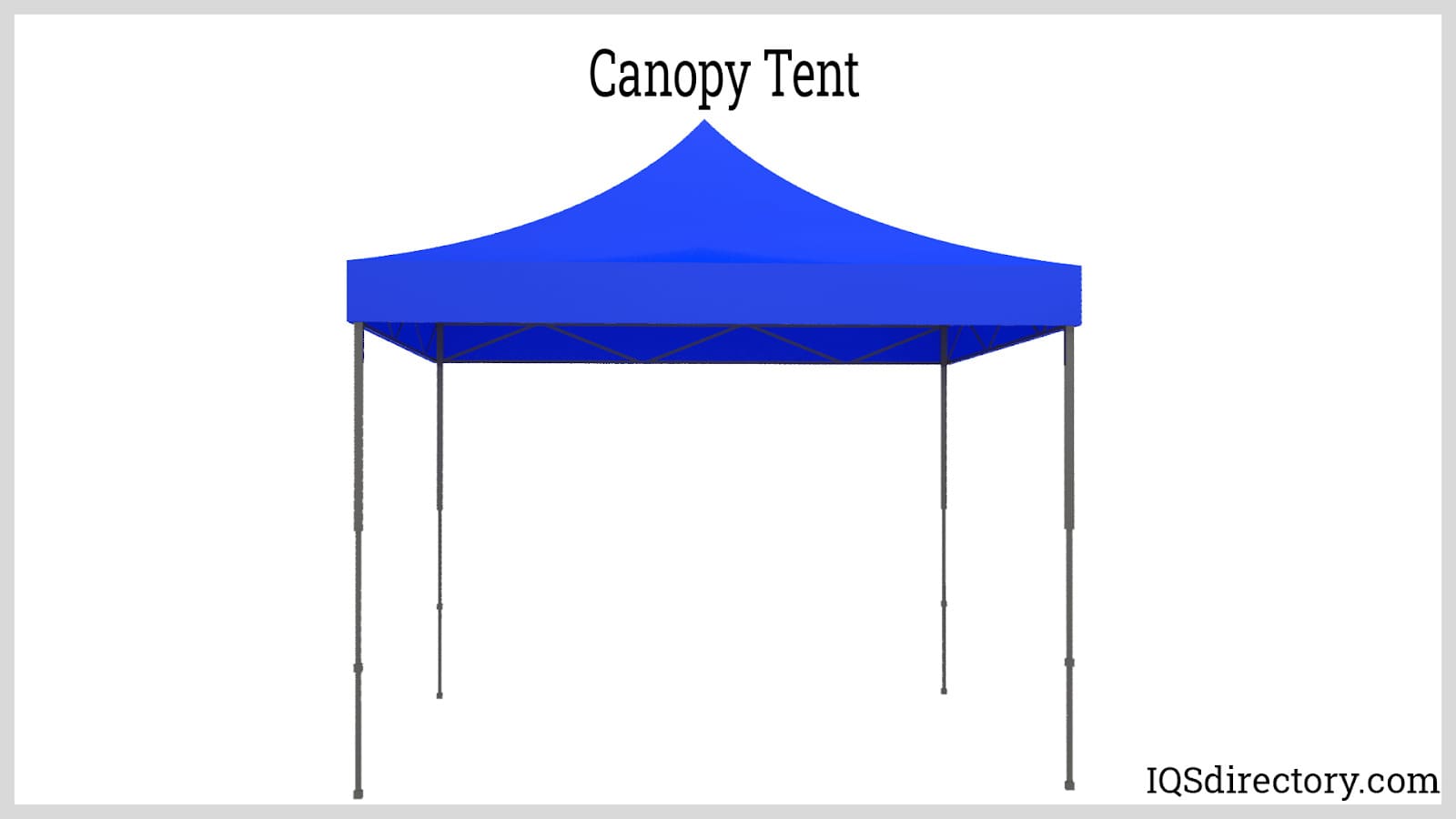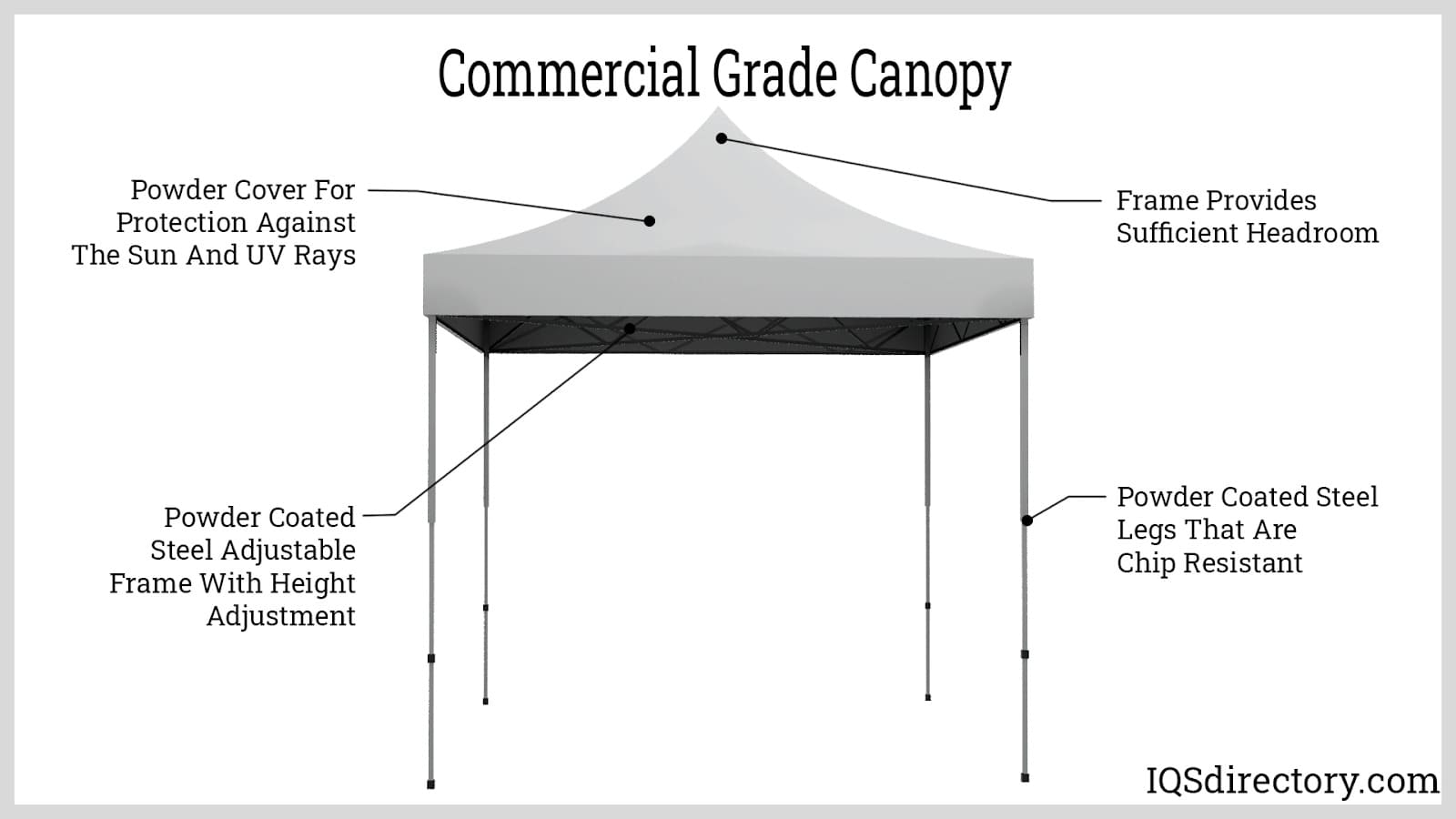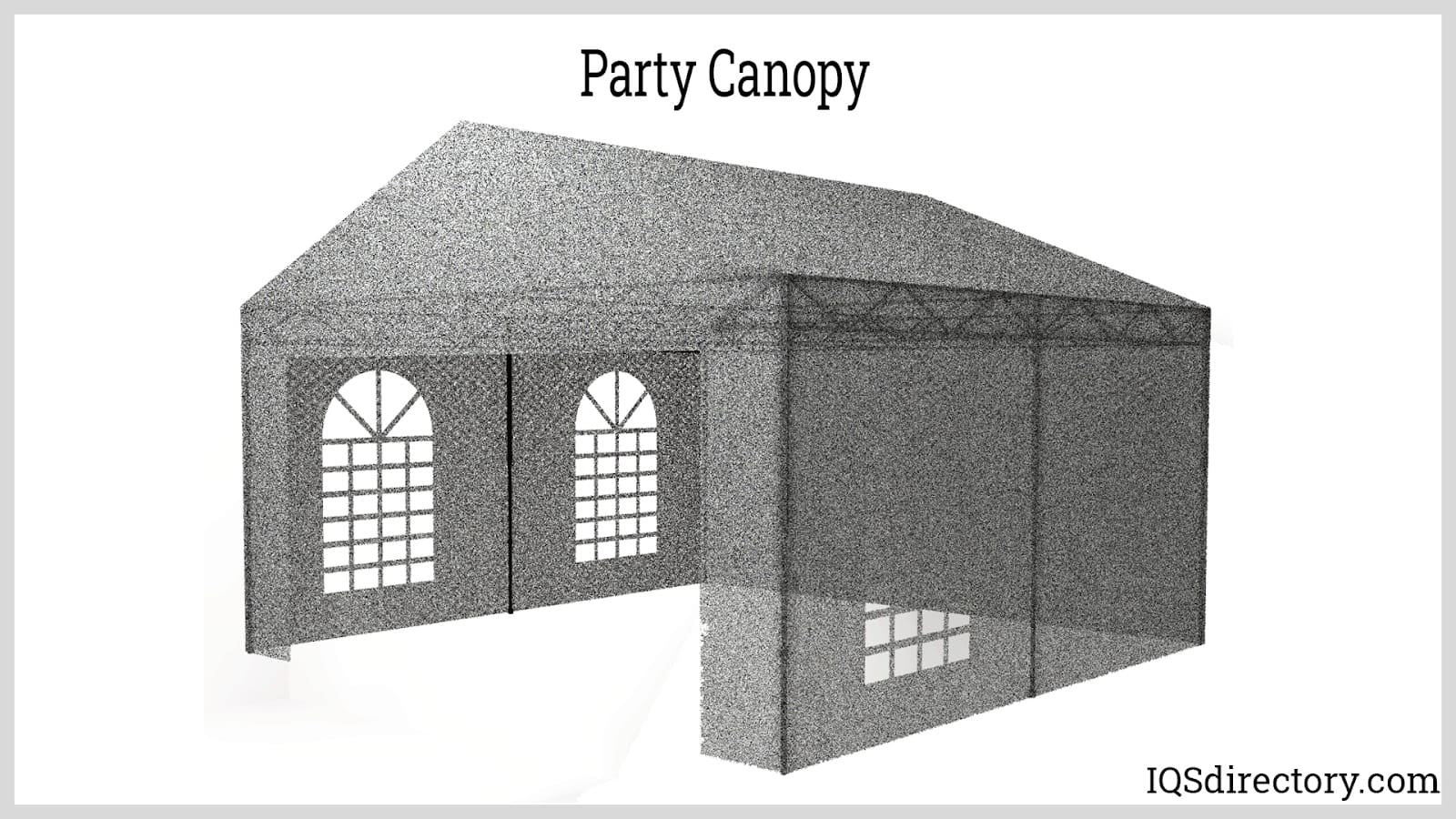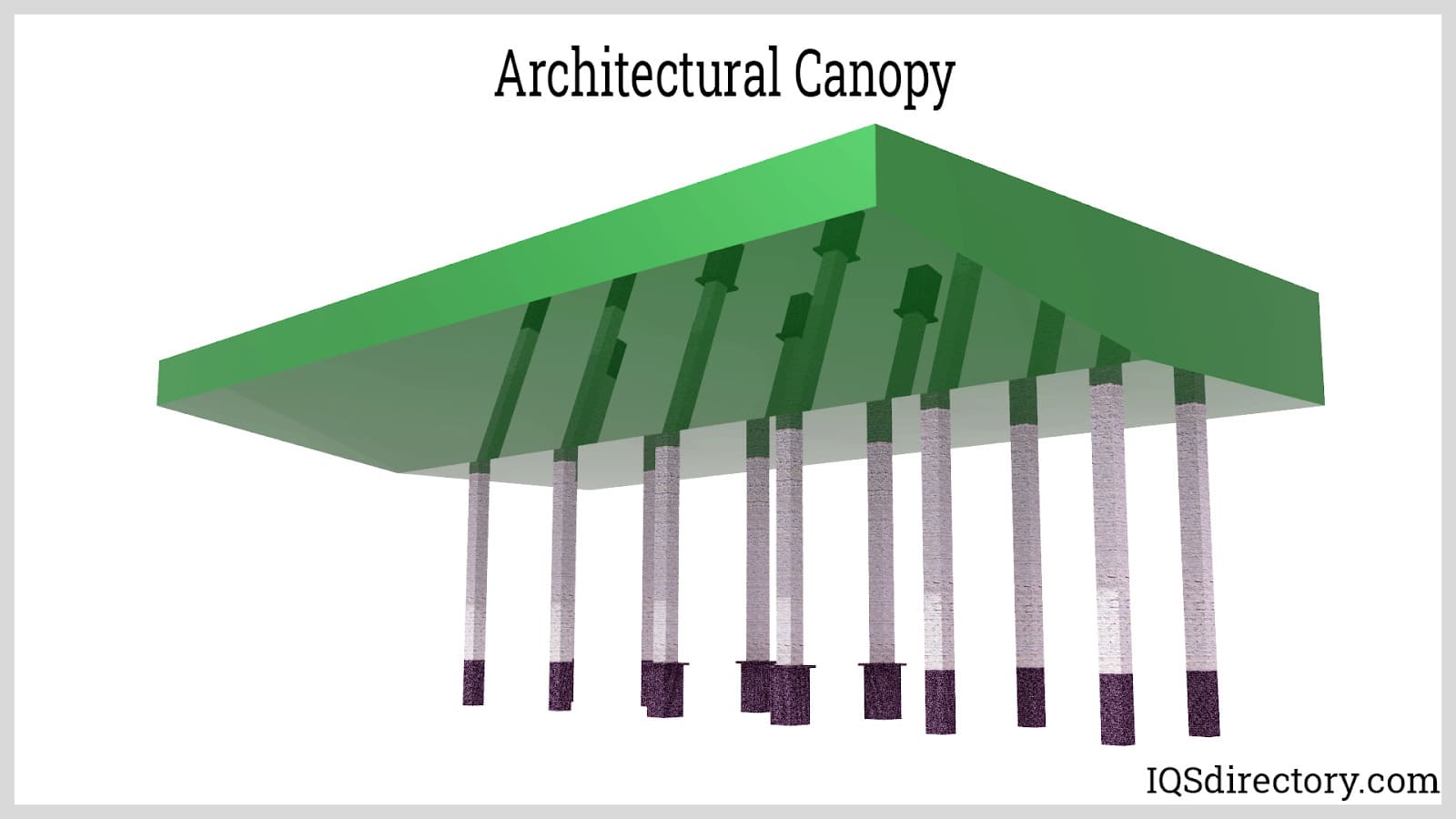Canopies
Canopies are a category of industrial protective cover made of an assortment of high-performance and durable materials. They are hung, suspended, or draped over a specific spot to provide shade and protection from the elements. Canopies can be decorative or functional depending on their purpose and location. In certain instances, they are used as architectural design features for shading windows or as accent pieces. There is an endless variety of uses for canopies due to the variations in their colors, fabrics, materials, and designs.

Fabric canopies are produced by contract and industrial sewing companies due to the types of fabric and the size of canopies. The process can involve the use of industrial sewing machines to connect large pieces of fabric or a complete design process built on customer requirements. Industrial sewing companies work with their clients to design canopies that fit the conditions and circumstances of the use of the canopy.
More durable canopies, such as those that hang on the sides of buildings, are made of various materials, including wood, aluminum, steel, and light metals. As with fabric canopies, heavier canopies come in endless varieties and are designed to fit the structure where they will be installed.
Quick links to Canopies Information
Types of Canopies
Canopies can be engineered, designed, and configured to fit any conditions and situation. From major social events such as the coronation of the queen to battlefield enclosures for military planning, canopies are a flexible, utilitarian way to provide quick protection against the elements and the sun’s rays.
Though there are several different styles and types of canopies, there are a few standard types meant for general use. Many of these varieties are made of fabric, are convenient, and are easy to assemble.
- Popup Canopies
- Popup canopies are easy to install and do not require the use of special tools. They are made much like an umbrella since they pop open and are ready to use in minutes. Popup canopies are a simple solution for providing immediate cover for small events.
- Commercial Grade Canopies
- Commercial-grade canopies are made of highly durable material and are designed for heavy-duty use. They are used for trade shows and promotional events such as trade fairs. In order to endure the demands of special events, commercial-grade canopies are made of very sturdy materials such as duck canvas. Certain varieties of commercial-grade canopies have walls, windows, and doors, which are added features for special events.
-

- Storage Canopies
- Storage canopies are widely used as protection for boats, cars, RVs, and other items that need to be stored outside. They are made of materials similar to those used to manufacture commercial canopies and are able to withstand harsh weather conditions. One of the major features of storage canopies is their ability to be assembled and placed easily and conveniently. Once they are no longer needed, they are just as easy to disassemble and store.
- Party Canopies
- One of the most popular uses for canopies is the party canopy, which is designed to provide extra space for special occasions without needing to rent a building or hall. Party canopies are larger than other canopies with an extremely high capacity. Due to their size and the need for assembly, party canopies are more expensive than standard canopies.
- Party canopies are durable and provide a sturdy solution when extra space is required. They have room for lights, tables, and chairs and can be decorated to fit festive occasions such as graduation parties or weddings.
-

- Architectural Canopies
- Architectural canopies have several functions, which include adding to the appearance of a structure, covering for drive-up locations, or outside patio coverings. Canopies that are included in a building's structure are designed to take a snow load, with ones for northern locations being capable of handling higher snow loads.
- In sunnier locations, architectural canopies provide shade from the sun and are made of lighter materials to block sunlight before it enters through windows and doors. For retail businesses, architectural canopies are used to enhance the name of the store and provide a frame for it.
- Architectural canopies are made of lightweight metals and designed to fit into the ambiance of the overall structure. They have to be sturdy enough to withstand weather conditions but have an aesthetically pleasing appearance. Most architectural canopies are made of various grades of aluminum.
-

- The few canopies listed above are a very small sampling of the many types of canopies that are designed, fabricated, and configured to fit a wide variety of conditions and occasions.
Materials Used to Manufacture Canopies
Choosing the materials for a canopy involves the consideration of several factors, which include durability, water resistance, UV ray protection, and fire resistance. These particular factors are in regard to fabric canopies that are made from polyester, polyethylene, woven fiberglass, and vinyl.
- Polyester Canopies
- Polyester is the most common material used for the manufacture of fabric canopies due to its durability and water resistance. It provides limited UV protection and will protect against the effects of water for a limited amount of time.
- Polyethylene Canopies
- Polyethylene canopies are used for more permanent canopies such as carports, boat protection, and other semi-permanent structures. It is waterproof, UV ray resistant, and fits easily into canopy frames.
- Vinyl Canopies
- Vinyl canopies are made of polyester fabric with a vinyl coating and are flame retardant, UV resistant, and waterproof. It is a heavy material that requires a very sturdy, durable frame.
- Woven Fiberglass Canopies
- Woven fiberglass is rot-proof and antibacterial and keeps out solar heat and the sun’s rays. It comes in several colors for interior or outdoor use. The weave of woven fiberglass can be varied, as well as the texture of its coating.
- Metal Canopies
- Metal canopy materials take several forms, with some being solid sheets while others are woven wire. The choice of the type of metal for a metal canopy depends on how the material will fit into the aesthetics of a structure as well as the durability and lasting quality of the material. Various grades of aluminum and steel are common choices for metal canopies since they have the necessary strength and endurance.